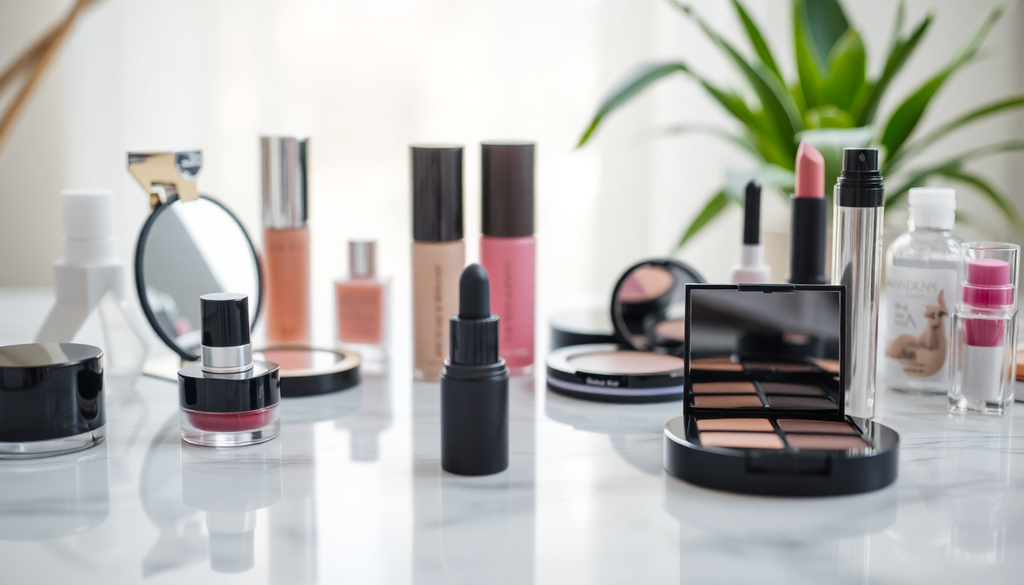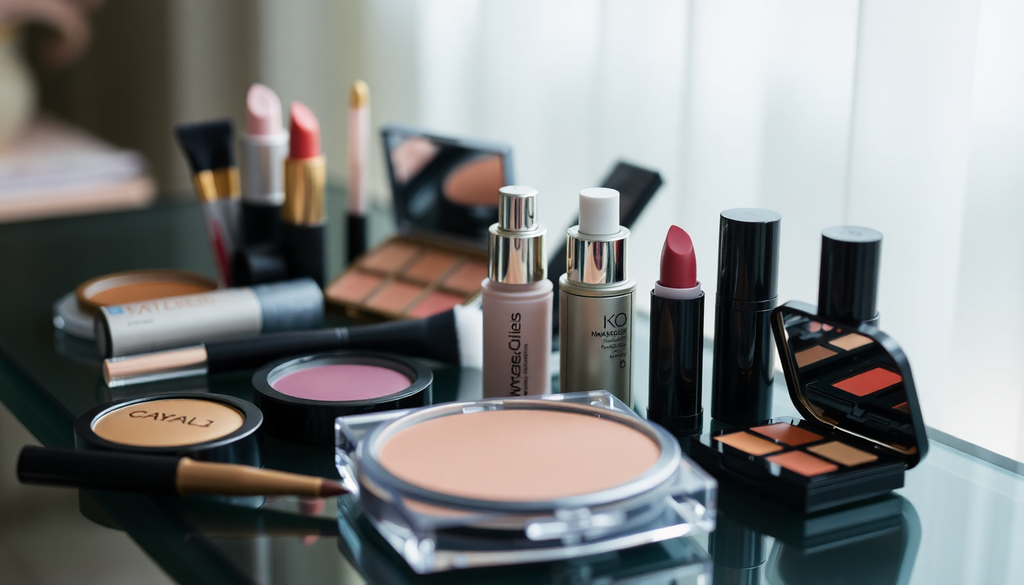
Navigating the New Zealand Makeup Business: Essential Insights on Private Label Cosmetics, Import Regulations, and Effective Marketing Strategies for 2025
Introduction
The makeup industry in New Zealand is experiencing remarkable growth, driven by a combination of consumer demand for innovative products and an increasing interest in unique, locally made brands. As we step into 2025, the landscape is ripe for entrepreneurs looking to enter the market. However, navigating the complexities of private label cosmetics, import regulations, and effective marketing strategies is crucial for success.
Understanding Private Label Cosmetics
Private label cosmetics offer a fantastic opportunity for new brands to enter the market with minimal investment in manufacturing. This model allows you to sell products under your own brand name while outsourcing production to established manufacturers. Here are some critical aspects to consider:
- Choosing the Right Manufacturer: Research and select reputable manufacturers that align with your brand values and comply with New Zealand's regulatory standards. Look for manufacturers who specialize in cosmetics and have a proven track record of quality and reliability.
- Custom Formulations: Collaborate with your manufacturer to create unique formulations that set your products apart from competitors. Conduct market research to identify consumer preferences and trends, ensuring your offerings meet customer demands.
- Brand Identity: Develop a cohesive brand identity that reflects your vision, mission, and unique selling proposition (USP). This includes logo design, packaging, and messaging that resonates with your target audience.
- Quality Control: Implement stringent quality control measures to ensure your products consistently meet high standards. Regular testing and feedback loops will help maintain product integrity.
Import Regulations for Cosmetics in New Zealand
Before launching your makeup brand, it's essential to familiarize yourself with New Zealand's import regulations. Compliance is not only a legal requirement but also crucial for building trust with your customers. Here’s what you need to know:
- Registration: All cosmetic products must be registered with the New Zealand Environmental Protection Authority (EPA). This process includes providing detailed information about the ingredients used and ensuring they are safe for consumer use.
- Labeling Requirements: Cosmetic products sold in New Zealand must adhere to specific labeling guidelines. Ensure that your labels include detailed ingredient lists, usage instructions, and any necessary safety information. Labels must also comply with the New Zealand Food Standards Code.
- Safety Assessments: Conduct thorough safety assessments for your products to ensure they meet local health regulations. This process may involve testing for allergens, irritants, and long-term skin effects.
- Customs Duties and Taxes: Be aware of any applicable customs duties and Goods and Services Tax (GST) that may affect your pricing and profit margins. Understanding these costs upfront can help you set competitive prices.
Setting Up an Online Makeup Store
In today’s digital landscape, having an online presence is essential for reaching your target audience. Here’s a step-by-step guide to setting up your online makeup store:
- Choose an E-commerce Platform: Select a user-friendly e-commerce platform such as Shopify, WooCommerce, or Magento. These platforms offer customizable templates, secure payment options, and integrated marketing tools.
- Design Your Store: Create an attractive and easy-to-navigate website that effectively showcases your products. Invest in high-quality product photography and ensure your site is mobile-friendly to accommodate a growing number of mobile shoppers.
- Payment and Shipping: Set up multiple secure payment options, including credit cards, PayPal, and Afterpay, to cater to different customer preferences. Develop a reliable shipping strategy that includes both domestic and international options, with transparent shipping costs and delivery timelines.
- Customer Support: Implement robust customer support systems, such as live chat or email assistance, to address customer inquiries and resolve issues promptly. Excellent customer service can lead to repeat business and positive reviews.
- Analytics and Tracking: Utilize analytics tools to track your website’s performance, customer behavior, and marketing campaign effectiveness. This data will help you make informed decisions and optimize your online store.
Effective Marketing Strategies for Your Makeup Brand
Marketing is vital for your brand’s visibility and success. Here are several effective strategies to attract and retain customers:
- Social Media Marketing: Leverage platforms like Instagram, TikTok, and Facebook to engage with your audience and showcase your products. Create visually appealing content, including makeup tutorials, product launches, and user-generated content to build a community around your brand.
- Influencer Collaborations: Partner with beauty influencers and makeup artists to expand your reach and build credibility. Influencers can provide authentic reviews and tutorials, helping to introduce your products to their followers.
- Content Marketing: Create valuable content such as blog posts, videos, and tutorials that highlight your products and educate consumers. Share tips on makeup application, trends, and skincare routines to position your brand as an authority in the beauty space.
- Email Marketing: Build an email list and send regular newsletters featuring product launches, promotions, and beauty tips. Email marketing can be a powerful tool for nurturing customer relationships and driving repeat sales.
- Search Engine Optimization (SEO): Optimize your website and content for search engines to improve your organic visibility. Use relevant keywords, meta descriptions, and alt tags to help potential customers find your products online.
- Online Advertising: Consider investing in online advertising, such as Google Ads or Facebook Ads, to target specific demographics and drive traffic to your store. Set clear goals and budgets to measure the effectiveness of your campaigns.
Building Customer Loyalty
In a competitive market, retaining customers is just as important as acquiring new ones. Here are some strategies to build customer loyalty:
- Quality Products: Ensure that your products are of the highest quality. Satisfied customers are more likely to return and recommend your brand to others.
- Loyalty Programs: Implement a loyalty program that rewards customers for repeat purchases, referrals, and social media engagement. This can encourage customer retention and increase lifetime value.
- Personalization: Use customer data to personalize marketing messages and product recommendations. Tailoring the shopping experience can enhance customer satisfaction and increase sales.
- Customer Feedback: Actively seek and listen to customer feedback. Use surveys and reviews to identify areas for improvement and show customers that their opinions matter.
Conclusion
Navigating the makeup business in New Zealand in 2025 requires a strategic approach to private label cosmetics, compliance with import regulations, and impactful marketing. By understanding these essential insights and implementing effective strategies, you can successfully establish and grow your makeup brand in this vibrant market. Embrace the challenges and opportunities ahead, and remember that building a successful business takes time, dedication, and a passion for beauty.




